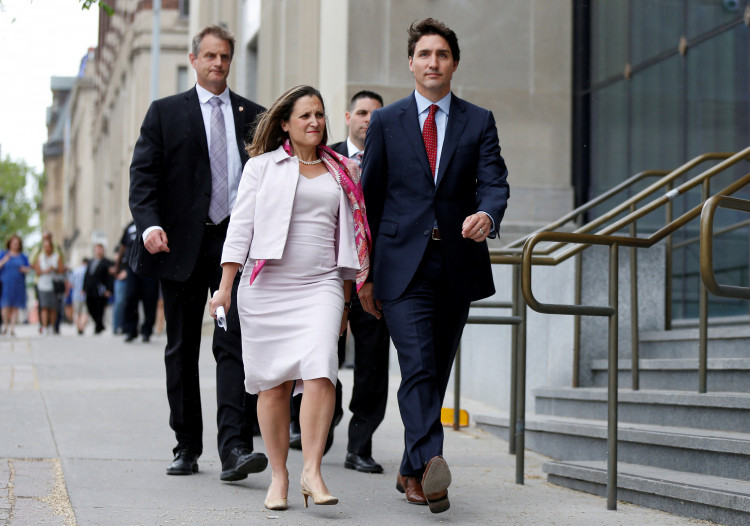U.S. Trade Representative Robert Lighthizer hinted that the United States and Mexico may proceed with a new trade deal without Canada as the Sunday deadline looms. He said that Canada is not making concessions in areas of the supposed updated North American Free Trade Agreement that they might as well carry on with Mexico alone.
Lighthizer was speaking at the Concordia Summit in New York held on Sept. 25.
U.S. President Donald Trump had already reached a deal with his Mexican counterpart, President Enrique Pena Nieto, in August. Both leaders have agreed that the revised NAFTA deal should be signed into law before Andres Manuel Lopez Obrador assume the presidency by December.
Trump should submit the final version of the NAFTA deal by Sept. 30 despite not meeting compromise with Canada. The Congress, however, may not approve the revisions if Canada is not to be included in the deal.
Washington and Ottawa could not compromise on demand coming from the Trump administration for Canada to drop its dairy subsidies. Another hurdle to a trilateral NAFTA deal is Ottawa's demand for the United States to drop auto tariffs and to preserve Chapter 19 which stipulates how trade disputes are supposed to be settled. The Trump administration wanted Chapter 19 to be excluded from the revised legislation.
Canadian Prime Minister Justin Trudeau, who spoke at the sidelines of the event hosted by the Council on Foreign Relations in New York, had also sent mixed signals. He said there is a possibility that Canada could build on what has already been agreed between the United States and Mexico. At the same time, he said he will not enter a swift deal to the detriment of his country's interest.
Meanwhile, analysts with JPMorgan Chase predict that if the United States and Mexico proceed with the deal alone, the Canadian dollar would be gravely impacted. The loonie could drop to almost 10 percent against the U.S. dollar. This will also mean that the United States can impose 25 percent tariffs on Canada's auto and dairy imports and exports.
If higher tariffs take effect, supply chains will be disrupted and the Bank of Canada will be compelled to cut interest rates, the analysts told Bloomberg.
On the other hand, should Canada decide to join the agreement, the Canadian dollar could go significantly stronger.
Separately, analysts with Fitch Ratings told Bloomberg that tariff or trade shock that could result from Canada withdrawing from the deal will push Bank of Canada to slash its interest rates to support borrowers.






